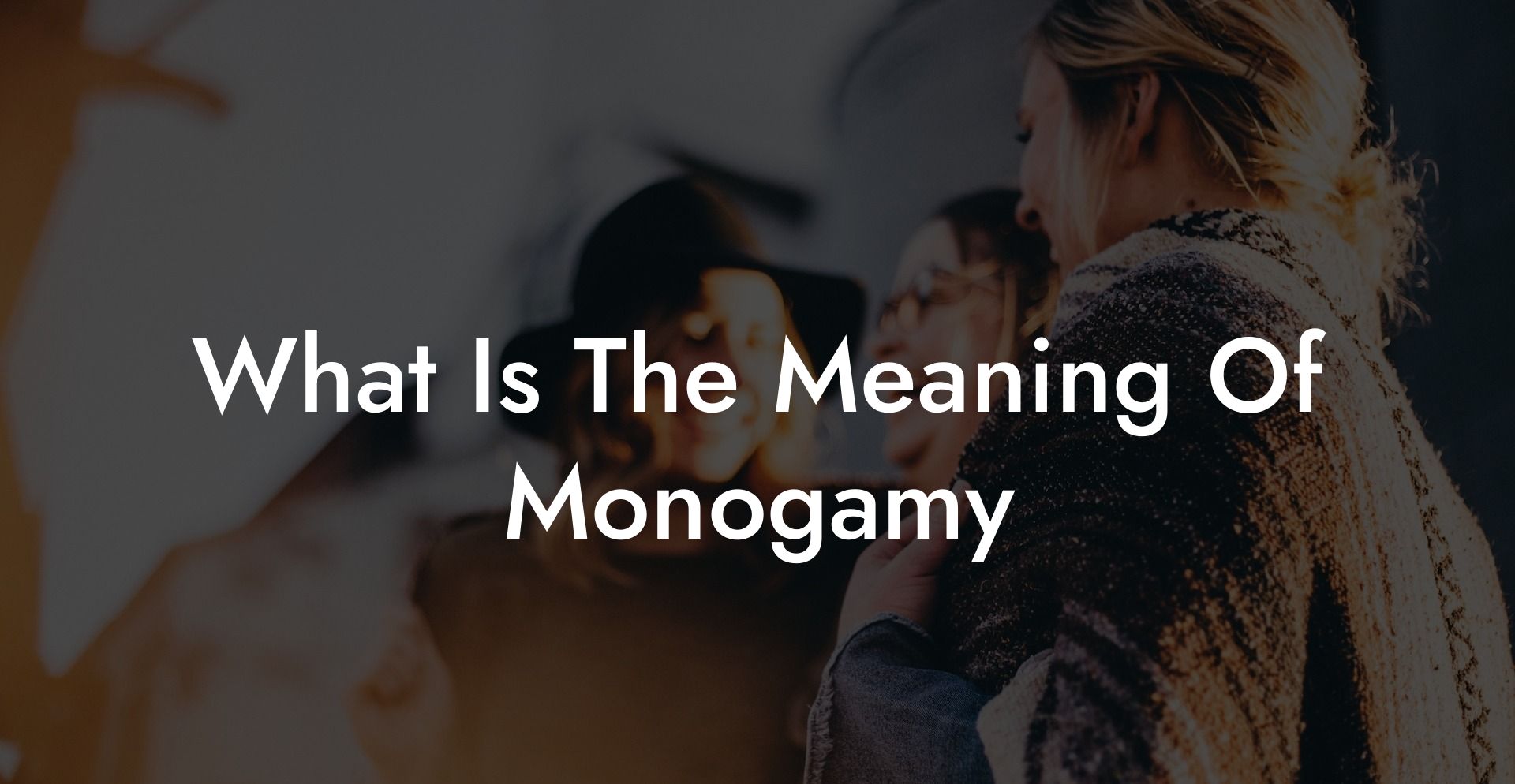Debates about relationships and commitment have been around for centuries, with couples continually challenging and redefining what it means to be together. Monogamy has been the traditional, accepted form of partnership in many societies, but non-monogamous alternatives are now gaining popularity. So today we will be taking a step back to ask and answer a fundamental question: what is the meaning of monogamy? Let's explore this concept, its pros and cons, and how it has evolved over time. By the end of this article, you'll have a better understanding of monogamy and why it has remained the go-to choice for so many people— and perhaps even feel inspired to share this post with others or explore more topics on The Monogamy Experiment!
What Is The Meaning Of Monogamy Table of Contents
At its core, monogamy is the practice of marrying or engaging in intimate relationships with only one person at a time. It's generally viewed as the standard model for committed long-term partnerships, particularly in Western cultures. The term comes from the Greek words "mono," meaning single, and "gamy," meaning marriage. Monogamous relationships can take the form of public marriage, private marriage (common-law marriage), or even cohabitation, but all share a commitment to exclusivity with one partner.
Monogamy has its roots in the cultural and religious practices of various civilizations dating back thousands of years. Most modern religions, including Christianity, Islam, and Judaism, uphold monogamy as the ideal structure for relationships, citing it as the foundation for family and social stability. From an evolutionary standpoint, some have argued that monogamous behavior in primates, including humans, developed as a means to ensure the survival of offspring.
There are several reasons people choose monogamous relationships, such as tradition, convenience, family expectations, and emotional security. Monogamous partners generally enjoy the stability and predictability offered by a committed, exclusive relationship. These partnerships can provide emotional and financial support, as well as a framework for raising children and building a life together.
However, monogamous relationships are not without their challenges. Critics argue that exclusivity can sometimes lead to feelings of being trapped or restricted and may encourage unrealistic expectations about love and partnership. Additionally, monogamous couples face the risk of experiencing jealousy, boredom, or frustration, which can sometimes lead to infidelity or the dissolution of the relationship.
What Is The Meaning Of Monogamy Example
To better illustrate the concept of monogamy, let's look at an example. Meet Jane and John, who are a married couple in a monogamous relationship. They took vows to be with each other and only each other, and they are both committed to nurturing their partnership and maintaining their trust and communication. Like any relationship, they face challenges and temptations, but their dedication to one another helps them navigate these obstacles and further solidify their bond.
Jane and John made the decision to be monogamous for various reasons, including their shared religious beliefs, expectations for a stable family life, and the emotional security they find in one another's exclusive commitment. This is not to say that they don't face doubts or hardships, but through open and honest communication, they work to ensure a fulfilling, lasting partnership.
In conclusion, monogamy is the practice of committing to one person at a time and builds upon the values of dedication, trust, and exclusivity. There is no one-size-fits-all approach to love and relationships, and while monogamy is still the choice of many couples, others may now explore alternative options for commitment, such as polyamory or open relationships. We hope this article has provided you with a clear understanding of monogamy and its significance in modern society.
If you found this article engaging and informative, we encourage you to share it with others and explore more content from The Monogamy Experiment. Your relationship journey is unique, and we're here to guide and support you, no matter which path you choose.













